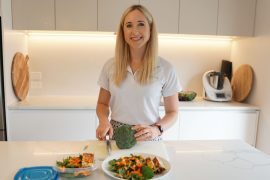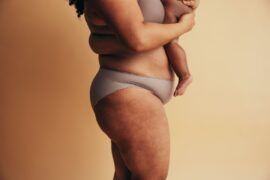By Kayla Wills – Integrative Nutritionist, Legacy Nutrition
Kayla is an Integrative Nutritionist with a special interest in preconception care, pregnancy nutrition, and post-partum repletion. Kayla has experienced first-hand the ramifications of depletion in pregnancy and postpartum and is now on a mission to educate mothers of the importance of good nutrition in motherhood.
Kayla is part of the team of clinical and integrative nutritionists at Legacy Nutrition. Legacy Nutrition is founded on the principles of how your thoughts, behaviours, environment, nutrition and lifestyle can cause changes that affect the way your genes work. Legacy is dedicated to educating women and their families on how to truly nourish themselves and see meaningful and lasting change that would impact not only our clients but the people around them, their families, and the generations to come…To leave a legacy.
“Nature is smart, which is why placing more emphasis on the importance of eating REAL foods in pregnancy is crucial.”
Whole, natural and unprocessed foods are the foundation that your pregnancy diet should lie on. By simply cutting out the junk and processed foods, you will be doing yourself and baby a world of good. Focus on a plant-rich diet that includes a variety of colours. The more colours the better! This also includes the all important “brown” foods like pasture-raised meats, nuts and seeds, and whole food sources of carbohydrates from potatoes, legumes & pulses, rice, quinoa, and buckwheat (to name a few). The ratios of macronutrients (protein, fat & carbohydrates) and how they are best consumed in relation to each other is a discussion to have with a qualified nutritionist or dietician as everyone’s needs can be individual, and the same applies for supplementation. While we 110% support those that choose to adopt a plant-based diet, it is recommended to work with a nutrition professional to make sure your nutritional needs are being met.

The following foods contain excellent amounts of nutrients that are needed during this exciting journey of pregnancy. Let’s explore!
FATTY FISH
Fatty fish like salmon and sardines are a wonderful source of the omega-3 fatty acids in the forms of DHA (Docosahexaenoic Acid) and EPA (eicosapentaenoic). DHA is crucial for the development of your baby’s brain and eyes, but is also important for supporting a healthy mood in mothers both in pregnancy and postpartum. Plant-based omega-3 sources such as flaxseeds, chia seeds, and walnuts contain an omega-3 called ALA (Alpha-linolenic acid). ALA needs to convert to DHA and EPA and it does so with much greater difficulty (3.8% conversion rate). If you are vegetarian or vegan, an algae-based supplement is highly recommended as it contains DHA in its whole form (no conversion needed). Consuming a minimum of 300mg DHA per day is needed during pregnancy, and if you can get in more, great! One 95g can of Wild Alaskan Salmon will give you 300mg to meet these needs.
LIVER
You can think of liver as the “multi-nutrient” of whole foods. Liver contains excellent amounts of natural folate, well absorbed haem iron, vitamin B12, choline, zinc, copper, selenium, and vitamin A. All these nutrients are crucial for the development of the baby and your recovery postpartum. There are concerns about the high vitamin A levels in the liver causing birth defects, however this theory is supported by “un-scientific findings” and is out of context when referring to liver in its whole food form. By eating around 150g (or equivalent in a desiccated powder form) of liver spread out over a week, you will not be consuming toxic amounts of vitamin A. Make sure your liver (beef, chicken, lamb) is from animals that are pasture raised, free range or organic to avoid any potential toxins or contaminants. Make your own pate and enjoy a couple of teaspoons a day on some seedy crackers. Visit the blog over at www.legacynutrition.co.nz for recipes that contain liver.

EGGS
Eggs are a rich source of choline, omega-3 (DHA), iodine, selenium, folate, healthy fats, and protein. To gain all the nutrients, eat the WHOLE egg, not just the white. Choline is of particular interest as it has a similar role to folate. It is involved in normal brain development and prevents neural tube defects, and even positively influences your baby’s genetic material. Many women avoid eggs due to fear of salmonella, but quality matters! Recent studies indicate that the odds that an egg contains salmonella are between 1 in 12,000 to 1 in 32,000. These odds are then 7 times lower if the eggs are from free range or organic chickens. Enjoy 2-3 a day to gain most of your choline needs.











